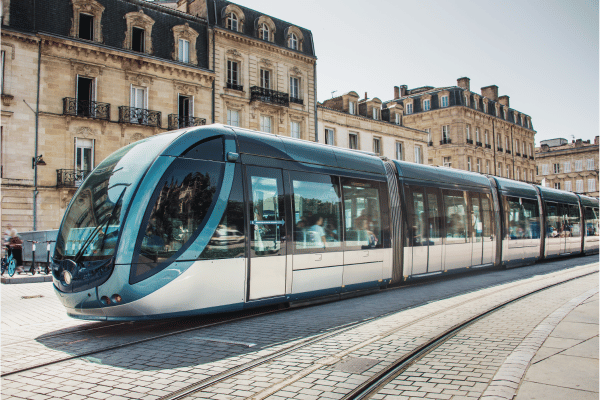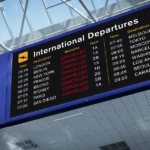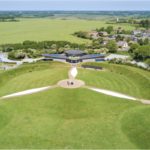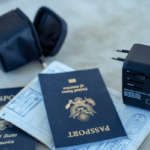In this comprehensive guide, we’ll explore vital strategies to Avoid Scams in France, ensuring your journey is both enjoyable and secure. As a seasoned traveler with over a decade of European exploration, I’ll share insights to enhance your French escapades.
Navigating French Streets with Confidence

France, a dream destination for many, is not immune to the pesky problem of scams. However, fear not! With the right knowledge, you can easily sidestep these pitfalls. Firstly, it’s crucial to be aware of common scams, particularly in tourist-heavy areas like Paris. From fake petitions to overpriced taxi fares, scammers often target unsuspecting tourists. Therefore, staying informed is your first line of defense.
Another key to Avoid Scams in France is to blend in. Scammers typically look for tourists who stand out. Dressing more like a local and less like a tourist can make a huge difference. Additionally, always keep your belongings secure. Pickpockets are adept at exploiting crowded spaces such as the metro or popular landmarks. Using anti-theft bags and being mindful of your surroundings can significantly reduce risks.
Lastly, trust your instincts. If a situation feels off, it probably is. Be cautious with overly friendly strangers or deals that seem too good to be true. Learning a few phrases in French can also help. It demonstrates your awareness and might deter scammers. Remember, a well-prepared traveler is a scammer’s worst enemy!
Staying Alert in French Tourist Spots
Tourist spots, while captivating, are often hotbeds for scams. Places like the Eiffel Tower or Montmartre are frequented by tricksters. It’s vital to stay alert. For instance, while admiring these iconic sites, keep your belongings close. Scammers often work in teams; while one distracts you, another might snatch your valuables. Always be wary of unsolicited help or overly friendly approaches in these areas.
Another aspect to Avoid Scams in France is understanding local customs. For example, it’s uncommon for French locals to approach tourists for donations or petitions. If someone does, it’s likely a scam. Also, be cautious of street games or performances that attract large crowds. These setups can be a ruse for pickpocketing. Keeping a safe distance from these activities is a wise choice.
Lastly, use cash sparingly and guard your credit cards. Scammers often have devices to clone cards, especially in crowded tourist areas. Opt for cashless transactions when possible and monitor your bank statements regularly. In case of any unauthorized transactions, contact your bank immediately. Precaution and vigilance are your best allies in these bustling tourist hubs.
Safe Dining Experiences in France
Dining in France is an integral part of the travel experience, but it’s crucial to stay vigilant to Avoid Scams in France. Be cautious of restaurants in overly touristy areas, as they might inflate prices or add hidden charges. Researching and choosing well-reviewed eateries, preferably frequented by locals, can lead to not only safer but also more authentic dining experiences.
When dining, always check your bill thoroughly. Sometimes, items you didn’t order might be included, or prices may differ from the menu. Politely question any discrepancies. Additionally, be aware of street vendors who may charge exorbitant prices for simple snacks or beverages, particularly near major tourist attractions. Opting for cafes a bit off the beaten path can offer both better prices and quality.
Lastly, be cautious of free food samples or drinks offered on the streets. While they may seem harmless, they could be a prelude to a scam or an attempt to sell overpriced goods. Politely declining such offers is a wise decision. By being mindful and doing a bit of planning, your culinary adventures in France can be delightful and scam-free.
Avoid Scams in France: Safe Shopping Tips

Shopping in France is a delight, yet it’s crucial to be vigilant to Avoid Scams in France. Beware of counterfeit products, especially luxury items sold at too-good-to-be-true prices. Trustworthy stores and official outlets are your best bet for genuine articles. Street vendors often sell imitation products, so always verify authenticity before making a purchase.
Haggling isn’t a common practice in French stores, so be skeptical of vendors who encourage it. This might be a tactic to sell overpriced goods. Always compare prices across different shops. Furthermore, be aware of your personal belongings in busy shopping areas; pickpockets are particularly active in these locales, targeting distracted shoppers.
Lastly, familiarize yourself with tax-refund policies. As a non-EU tourist, you may be eligible for VAT refunds on certain purchases. However, ensure you complete all necessary procedures correctly. Some scammers offer to assist with tax refunds but may end up charging exorbitant fees. Using official refund services at airports or large stores is a safer option.
Secure Accommodation Choices in France
Selecting accommodation in France requires attention to Avoid Scams in France. With the rise of online bookings, it’s essential to use reputable platforms. Be wary of deals that seem exceptionally cheap. They might be a lure for scams involving non-existent rentals. Always check reviews and ensure the legitimacy of the property before making any payments.
When booking, be cautious of requests for wire transfers or cash payments. Legitimate bookings usually accept credit cards or secure online payments. Additionally, avoid sharing personal information or copies of documents via email with unknown or unverified sources. This can be a method to extract sensitive information for fraudulent purposes.
Upon arrival, inspect the accommodation thoroughly. Ensure it matches the description and photos from the booking. If anything seems amiss, contact the booking platform immediately. Keeping a record of all communications and transactions related to your accommodation is also a good practice, as it provides evidence in case of any disputes.
Reliable Transportation While in France

Navigating transportation in France is key to Avoid Scams in France. When using taxis, ensure they’re official. Look for the light on the roof and check if the meter is running. Unofficial taxis may overcharge or take longer routes. For a more secure option, consider using reputable ride-sharing apps where fares are predetermined.
Public transportation in France is reliable, but be cautious of pickpockets, especially in crowded metros or buses. Keep your belongings secure and be mindful of your surroundings. Also, when purchasing tickets, use official ticket counters or machines. Avoid buying from strangers who may sell invalid or overpriced tickets.
If renting a car, do so from established rental agencies. Double-check the rental agreement and ensure you understand the terms. Be wary of any unexpected additional fees or pressure to purchase unnecessary insurance. Document the car’s condition before use to avoid unwarranted charges for pre-existing damages.
Navigating French Markets Safely
French markets are a feast for the senses, yet they’re also places where you need to be vigilant to Avoid Scams in France. Always be cautious with your money and belongings. It’s easy to get distracted by the array of products, making you a prime target for pickpockets. Keep your wallet and phone in secure, closed bags.
Beware of counterfeit items, particularly in tourist-frequented markets. If the price of branded or luxury goods seems too low, it’s likely not genuine. Also, be cautious of vendors who may try to overcharge tourists. Knowing the average price of common items can help you negotiate and avoid being overcharged.
Finally, be mindful of food scams. Some vendors might offer free tastes and then charge exorbitantly for small quantities. Always ask for prices before sampling or buying. Enjoying the vibrant atmosphere of French markets is part of the experience, but staying alert and cautious ensures a more pleasant and safe visit.
Cultural Etiquette and Scam Prevention
Understanding cultural etiquette in France can greatly aid in efforts to Avoid Scams in France. Scammers often prey on tourists who are unfamiliar with local customs. For instance, it’s uncommon for strangers to strike up conversations or offer unsolicited help in public spaces. If this happens, approach the situation with caution.
Beware of scams involving cultural or historical artifacts. Purchasing such items on the street can not only involve counterfeit goods but also legal issues. Always buy from reputable sources. Additionally, be cautious of people claiming to be ‘guides’ or offering unsolicited tours around historical sites. They might demand exorbitant fees afterwards.
Lastly, respect local customs and laws. This not only enriches your travel experience but also reduces the likelihood of encountering scams. Scammers often target those who appear disrespectful or ignorant of local norms. By being a considerate and informed traveler, you present yourself as a less likely target for scams.
Avoid Scams in France: Safe Nightlife Practices
Exploring France’s nightlife can be exhilarating, but it’s essential to stay alert to Avoid Scams in France. Be cautious in bars and clubs, especially those in tourist areas. Some establishments might inflate prices significantly for tourists, or offer ‘special’ drinks at exorbitant costs. Researching popular and reputable venues beforehand can prevent such unpleasant surprises.
Never leave your drink unattended or accept drinks from strangers. This is a common method used by scammers to take advantage of tourists. Additionally, stay in groups and plan your route back to your accommodation. If using a taxi, ensure it’s a licensed one, and avoid unofficial cabs that might overcharge.
Lastly, be wary of people who seem overly friendly or interested in showing you around late at night. Stick to your plan and be skeptical of unsolicited invitations to unknown places. Keeping your wits about you and staying in control of your environment are crucial to enjoying France’s vibrant nightlife safely.
Exploring Rural France with Caution
While rural France offers a serene escape, it’s still important to Avoid Scams in France in these settings. In smaller towns or countryside areas, be cautious of anyone offering unsolicited assistance with accommodation or travel. While many locals are genuinely friendly, it’s wise to rely on official sources for information and help.
Be aware of scams related to local produce or handicrafts. In some cases, items may be misrepresented or overpriced, targeting tourists who are unfamiliar with the local market. It’s recommended to purchase from established stores or markets where prices and quality are more transparent.
Lastly, if you’re hiking or exploring rural landscapes, be wary of guides offering unscheduled tours. These can sometimes lead to pressured situations for payment or take you off the safe path. Stick to well-known trails and if hiring a guide, ensure they’re from a reputable company. This approach ensures a safe and authentic experience in France’s beautiful countryside.
Safe Online Transactions in France
In today’s digital age, being cautious with online transactions is vital to Avoid Scams in France. When booking tours, accommodations, or buying tickets online, use reputable websites. Be wary of offers that seem too good to be true, as they often are. Always check for secure payment options and read reviews before committing.
Be cautious of phishing emails or messages claiming to be from banks or travel agencies. These often ask for personal information or payments and can lead to identity theft or financial loss. Never provide sensitive information through unsecured channels. If in doubt, contact the service provider directly through official channels.
Lastly, keep a close eye on your bank and credit card statements during and after your trip. Report any suspicious activity immediately. This vigilance not only protects you from potential scams but also helps in quick resolution should any issues arise. In the digital realm, being informed and cautious is your best defense.
IN SUMMARY
In conclusion, traveling through France can be a mesmerizing experience if navigated wisely. Remember, being informed and cautious are your best tools to Avoid Scams in France. Embrace the culture, the sights, and the flavors of France, but do so with a vigilant eye. Every tip shared here aims to empower you, turning potential vulnerabilities into strengths.
Your awareness and preparedness are the keys to thwarting scams and ensuring a memorable French adventure. Whether strolling through the bustling streets of Paris, savoring the culinary delights, or exploring the tranquil countryside, your safety and enjoyment are paramount. These tips don’t just safeguard your wallet; they enhance your travel experience, allowing you to immerse fully in the beauty and charm of France.
I encourage you to share your experiences and insights with fellow travelers. Together, we can create a community of informed and vigilant explorers. If you found this guide helpful, please consider visiting other pages on our site for more travel tips, or leave a comment with your thoughts. Safe travels and bon voyage!
II. Frenquently Asked Questions About France
- How do I navigate the French healthcare system as a tourist?Ensure you have travel insurance that covers healthcare. Pharmacies are widespread for minor ailments, and emergency services can be contacted by dialing 112.
- What are some popular French festivals to experience?Don't miss the Cannes Film Festival, Bastille Day celebrations, and the Nice Carnival for their vibrant displays of French culture and festivity.
- What are the best regions in France for wine tasting?Visit Bordeaux for reds, Champagne for sparkling wines, Burgundy for Chardonnay and Pinot Noir, and the Loire Valley for a variety of whites.
- How do I respect local customs while visiting religious sites in France?Dress modestly, remain quiet, and follow any posted visitor guidelines to show respect while visiting places like Notre-Dame Cathedral and Mont Saint-Michel.
- What should I know about shopping in France?Shops in smaller towns may close for lunch, sales are state-regulated and occur twice a year, and asking for a "détaxe" form can save tourists on VAT for larger purchases.
- Is tap water safe to drink in France?Yes, tap water is safe to drink in most parts of France, making it both a sustainable and economical choice.
- What are some French etiquette tips for visiting someone's home?Bring a small gift such as wine, flowers, or chocolates. Arrive on time or slightly late, and always remove your shoes if the host does.
- Can you recommend any French books or movies to get inspired before my trip?Movies like "Amélie" and "Midnight in Paris" and books like "A Moveable Feast" by Ernest Hemingway offer enchanting views of France.
- What are the rules for tipping in France?Service charge is included in bills, but leaving an extra 5-10% at restaurants is appreciated for good service.
- How do I use public transport in Paris?To use public transport in Paris, purchase a ticket or pass from metro stations, kiosks, or RATP app. The metro, buses, and trams are interconnected for ease of travel. A single ticket works for a one-way journey, including transfers. Consider a day pass for unlimited travel or a Navigo pass for longer stays. Always validate your ticket before boarding, and keep it until you exit to avoid fines.

Ryan Taylor, a seasoned traveler with over a decade of experience exploring Europe’s nooks and crannies, offers a wealth of knowledge and unique insights into the continent’s diverse cultures and landscapes. His passion for travel began in his early twenties, and since then, Ryan has journeyed through numerous European countries, collecting stories, tips, and a deep understanding of each destination’s unique charm. His blog entries are not just guides but narratives enriched with personal experiences, making every recommendation and piece of advice relatable and practical for fellow travel enthusiasts. With a keen eye for hidden gems and a love for sharing his adventures, Ryan’s writings are a treasure trove for anyone seeking to discover the beauty and richness of Europe.






